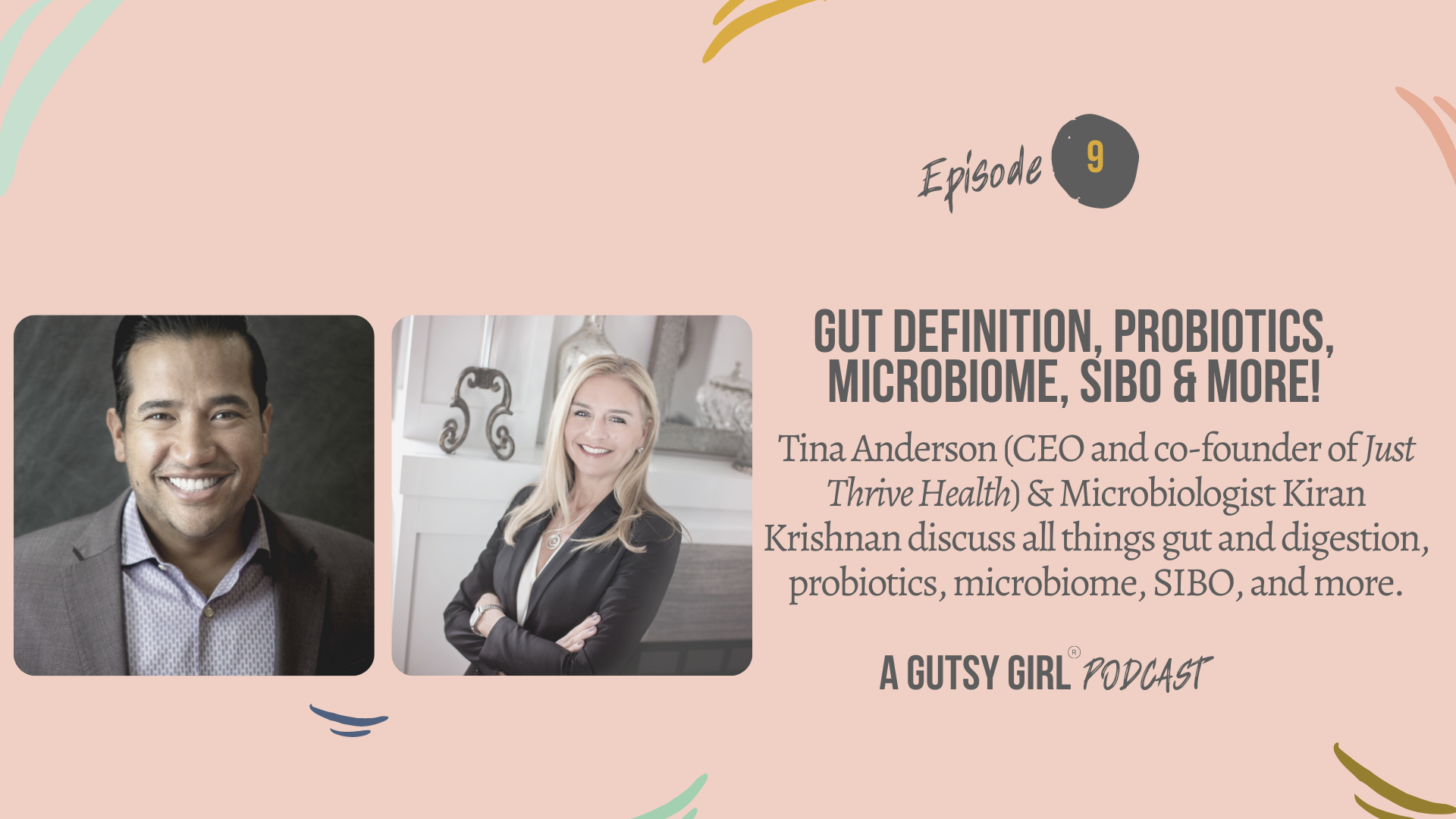Once we launched More Omega, you started asking, “Why DHA supplementation and EPA? What is the difference between DHA vs EPA?”
While today is Valentine’s Day, I’m not here to chat about that. Fun fact: I’m not a fan of Valentine’s Day at all. Never have been, never will be.
However, February is also National Heart Month which does coincide with today’s topic — inflammation.
Subscribe Today:
Apple Podcasts | Spotify | iHeart Radio | RSS
Resources
- NIH article
- Tufts University study
- The Omega-3 Index
- The Gutsy Bundle
- Healing Blooms from Within (90-day gut healing journal)
- A Gutsy Girl’s Bible
Don’t Miss These Thoughts
- What are omega-3 essential fatty acids?
- The critical role Omega-3’s play in inflammation reduction
- What is the difference between DHA and EPA and what different effects do they have on the body?
- The positive effects of supplementing with a high-quality fish oil
- What is the ratio of EPA to DHA in More Omega?
DHA vs EPA {Episode 73, Bites #19}
Click HERE to save this post on DHA vs EPA for later.
![DHA vs EPA [Episode 73, Bites #19] agutsygirl.com](https://agutsygirl.com/wp-content/uploads/2023/02/DHA-vs-EPA-Episode-73-Bites-19-agutsygirl.com_-683x1024.png)
Let me back up for a second.
When the experts start discussing National Heart Month, they always mention fatty fish like salmon, sardines, mackerel and herring. Fish oil is commonly mentioned as well.
And whether it’s National Heart Month or Autoimmune Disease month, the one word that unites them all is INFLAMMATION.
Inflammation affects us to a greater extent than almost anything else.
So, it’s common for this to be mentioned,
Eat healthy Omega-3’s and/or take an Omega-3 supplement.
And that is because Omega-3’s are known to counter chronic inflammation. And in this case, as you’ll see, thought the entire body.
But what does that really mean?
Omega-3 Supplements
Well, when you take to the Google and enter, “What is an Omega 3 supplement,” up pops an article from the Cleveland Clinic.
Some important takeaways from the article for discussion today:
- Your body can’t produce the amount of omega-3s you need to survive. So, omega-3 fatty acids are essential nutrients, meaning you need to get them from the foods you eat.
- There are three main types of omega-3 fatty acids:
- EPA (eicosapentaenoic acid). EPA is a “marine omega-3” because it’s found in fish.
- DHA (docosahexaenoic acid). DHA is also a marine omega-3 found in fish.
- ALA (alpha-linolenic acid). ALA is the form of omega-3 found in plant foods.
Omega-3s are essential nutrients that you need to get from your diet.
When you get ALA from food, your body is able to turn some of the ALA into EPA and subsequently to DHA.
However, this process provides just a small amount of EPA and DHA. So, dietary sources of EPA and DHA (like fish) are essential.
As that article was directly correlated to heart health, I wanted to find another one more relevant to our community.
PubMed released an article with the title, “Omega-3 fatty acids in inflammation and autoimmune diseases.”
In the article it is stated,
There have been a number of clinical trials assessing the benefits of dietary supplementation with fish oils in several inflammatory and autoimmune diseases in humans, including rheumatoid arthritis, Crohn’s disease, ulcerative colitis, psoriasis, lupus, multiple sclerosis and migraine headaches. Many of the placebo-controlled trials of fish oil in chronic inflammatory diseases reveal significant benefit, including decreased disease activity and a lowered use of anti-inflammatory drugs.
Let’s break each of these down further.
Now, before I continue on, let me be very clear. I am all about food vs supplements as a first option and first line of defense.
Always. End of story.
And so, let me first start with a list of foods which are high in Omega 3’s.
Foods that Contain Higher Doses of Omega 3’s
- Salmon
- Mackerel
- Herring
- Sardines
- Walnuts
- Trout
- Oysters
- Anchovies
- Flaxseed
- Caviar
- Chia seeds
Many sources will even state that you should get your omega-3’s from food vs. supplements.
However, we should break this idea down more.
Since omega-3’s are essential nutrients, we must get them from the foods we eat.
The problem with this is that most people who are non Vegetarian, get them from fish.
But getting high-quality fish is not easy for many people. I am one of them. Sure, when we lived in California, I had access to the best and freshest fish 24/7.
But now that we live in a small town in southern Minnesota where the Walmart is our only grocery store? Not so much.
The NIH states,
Average intake of ω-3 fatty acids has decreased to less than 20 % of what was present in common diets 150 years ago. About 95–99 % of the population gets ω-3 fatty acids lesser than that required for good health, making ω-3 fatty acids an essential nutrient and therefore the most therapeutic of all the essential nutrients (20 minerals, 14 vitamins, 8–11 amino acids, 2 fatty acids).
If you are able to obtain the appropriate amount of omega-3’s from high-quality oily fish alone, then more power to you.
But if you’re like me — and, I’d argue this is where most people fall — you will want to supplement with a high-quality omega-3.
And this brings me to point 2.
What is included in a high-quality omega-3 supplement?
Well, remember what I stated earlier about the three main types of omega-3 fatty acids: EPA, DHA and ALA but when you get ALA from food, your body is able to turn some of the ALA into EPA and subsequently to DHA.
The conversion of ALA provides just a small amount of EPA and DHA.
So, dietary sources of EPA and DHA (like fish) are essential.
So, if we need both EPA and DHA then what are they and what do they provide?
The omega-3 fatty acids EPA and DHA work differently against chronic inflammation, according to the results of a small randomized recent study conducted by researchers at Tufts University, suggesting each has its own important role to play in regulating the immune system.
One source states, “DHA is more of the “neck-up” omega-3 (although it also supports a healthy heart), whereas EPA is more of the “neck-down” omega-3 (although it also supports a healthy mood).”
And another states the “benefits of EPA are anti-inflammatory while DHA is known for boosting brain health.”
The NIH states,
Fish and fish oil are the richest sources of EPA with contents ranging from 39 % to 50 % for both fresh and salt water fish (Kinsella 1990)
They also state that DHA is present in fish oil and red brown algae. It is a major brain ω-3 fatty acid and is also found in eye ball (retina). Brain is made up of about 65% fat and out of this 50% is DHA. (source)
High-Quality Fish Oil Supplements
You can get your high-quality fish oil supplements right from my Fullscript online dispensary.
Once you sign up, I’ll increase your savings to 20%. After your first purchase, I’ll increase your savings to 25% off.
More from A Gutsy Girl
Want to learn even more about the gut and ways to heal it?
Learn all the secrets via my signature book, A Gutsy Girl’s Bible: a 21-day approach to healing the gut. Grab your copy on Amazon HERE.
- Welcome to A Gutsy Girl Podcast
- Hang out on Instagram
- BFF’s on YouTube
- Resource: The Master Gutsy Spreadsheet
- Rated-G Email Club
Wrap Up
Time to wrap this up. As always, a huge goal for this show is to connect with even more people. Feel free to send an email to our team at podcast@agutsygirl.com. We want to hear questions, comments, show ideas, etc.
Did you enjoy this episode? Please drop a comment below or leave a review on Apple Podcasts.
If you liked this information, you might also enjoy:
- Healthy Fats
- Cellular Inflammation + Cellular Healing {+ Diet Food List} {Episode 56 with Paola Xhuli}
- Polyunsaturated fats (+ more)
Xox,
SKH
🤰 bloating be gone! weight loss through optimal gut health for women
💃ʜᴇᴀʟ ʏᴏᴜʀ ɢᴜᴛ. ʜᴇᴀʟ ʏᴏᴜʀ ʟɪfe.
🫶🏻 founder gutbyome.com


![How to Heal Your Gut [86 Ways]](https://agutsygirl.com/wp-content/uploads/2020/09/healing-journal-featured-agutsygirl.com_.png)




